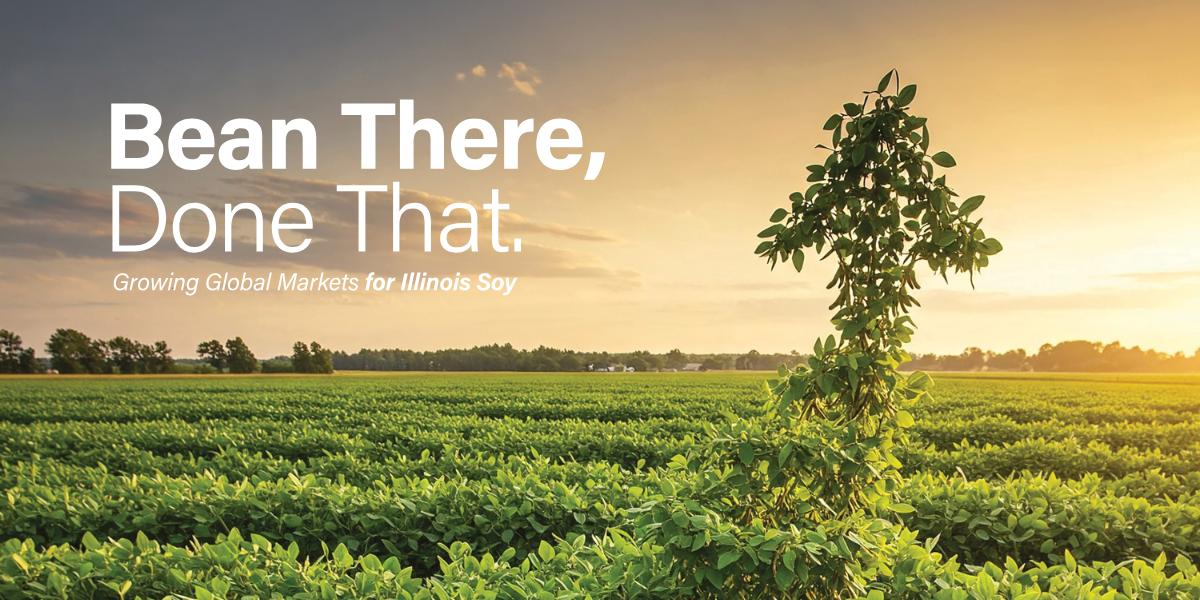In the early morning hours of June 1, the Illinois General Assembly concluded its spring 2025 session. Seasoned observers noted that while there was no action on major initiatives for most of the year, the final two weeks contained a flurry of activity. A few of these topics were important to agriculture, and the team at Illinois Soybean Growers (ISG) engaged actively to stand up for agriculture.
Over 400 pieces of legislation ended up heading to Governor JB Pritzker for his signature. ISG was pleased to see positive action on efforts to help manage deer populations for landowners, to create a new continuing education option for pesticide applicators, and to expand the framework to allow accelerated infrastructure project delivery including bridge bundling.
Another major victory was the passage of SB1697, which delivers meaningful protection and compensation for agricultural landowners affected by carbon capture and sequestration (CCS) pipeline projects. It includes provisions proposed by ISG that increase compensation for damages to crops, soil, drainage systems and structures, with payments based on local yield and price data. Landowners have the right to submit their own compensation estimates, and farmland must be restored to its original condition. Construction is restricted during periods of excessive soil moisture, and the Illinois Department of Agriculture has the authority to halt work if standards are not met.
The bill also addresses the use of underground pore space for carbon storage. Developers must secure consent from owners of at least 75% of the surface area involved, and nonconsenting landowners must receive equal compensation. Clear timelines for payment and legal recourse are established, allowing landowners to recover damages and attorney’s fees in court if necessary. These enhancements of protections in the law help improve the situation for landowners. However, ISG remains committed to opposing the use of eminent domain for these projects.
This session also saw increased interest in revamping and lessening the burden of Illinois estate tax law. The ISG Government Relations Committee of farmer leaders voted in November to pursue a plan requesting relief for a majority of estates that pay taxes. It called for this to be done in a way that is revenue neutral to reduce any effect on state revenue. ISG met with several dozen legislators and found good support for reforming the estate tax system in this manner. A chief complaint is that it is incredibly complex to understand, and planning for paying estate taxes has become more challenging under current law. In the coming months and next legislative session, ISG will remain committed to improving our estate tax system and to reducing burdens on family farms and small businesses.
With state budgets growing tighter each of the past few years, two other funding concerns topped ISG’s list for engagement at the end of session. First, ISG and other partners have long supported the Fall Covers for Spring Savings program, which provides a $5-per-acre discount on crop insurance premiums for land enrolled in the program.
This program is incredibly popular and fills up rapidly each year. ISG has supported increasing the program to as much as 1 million acres. Unfortunately, because of budget cuts, the modest gains seen in last year’s budget were proposed to be cut. ISG’s efforts directly resulted in the restoration of funding to the current level supporting over 200,000 acres.
Finally, we witnessed an unexpected fight to save the biodiesel sales tax exemption in Illinois. This program, first enacted in 2003, has made Illinois a leader in the use of biodiesel, largely made from soybean oil. In 2022, ISG passed an extension of this program and expanded the blend threshold to reach B20 blends next April. This supports the use of soybean oil from over 100 million bushels of soybeans annually in Illinois. This is a huge driver for the demand and use of soybeans here in Illinois. Unfortunately, since this program exempts gallons of diesel fuel from paying sales tax if they contain the minimum content, it was seen as a quick revenue source to pay for budget shortfalls. ISG and key legislator advocates including State Senators Koehler and Joyce as well as State Representative Eva Dina Delgado and others fought to keep this demand driver intact.
The end of session in Springfield rarely ends the way everyone thought it would. One thing that has changed is that agriculture has a stronger voice in Springfield today than in past years. Our team at ISG has been building momentum for the past few sessions and looks forward to advancing and protecting the needs of Illinois farmers in Springfield in the next session.
Recent Articles
This exclusive issue of Illinois Field & Bean Magazine covers checkoff-funded research projects and their findings, as told by the research leads themselves.
By
Meet Bean There, ISA's International Market Development blog that covers events, conferences, trade missions and farm visits to connect Illinois soy with industry representatives, key trade partners, global buyers and more.
By Emma Peters, ISA International Markets Coordinator

